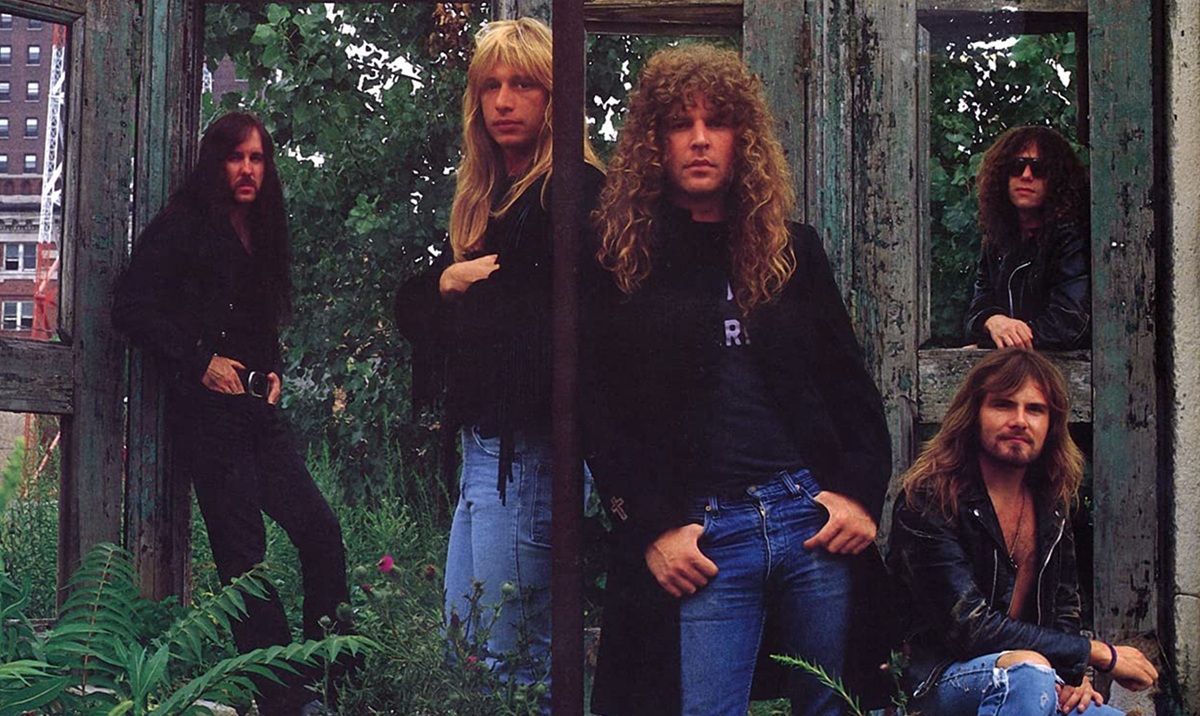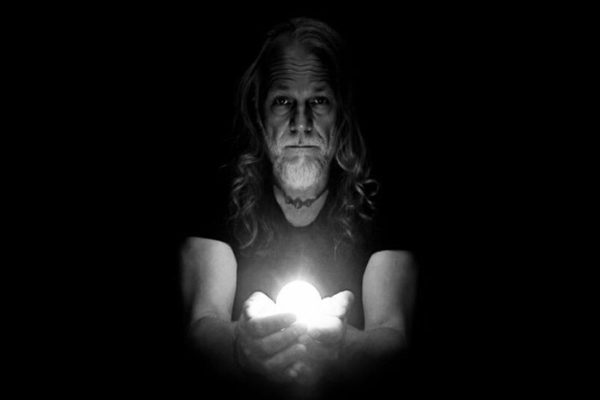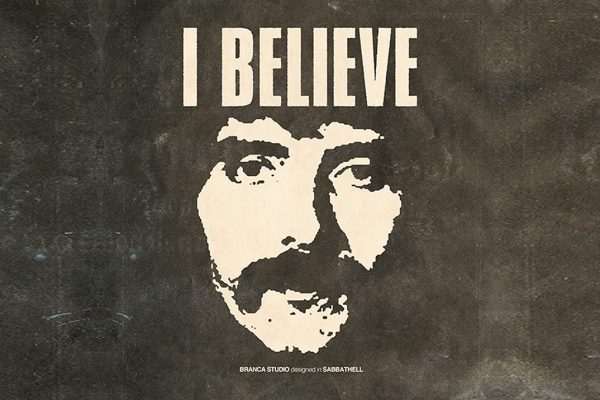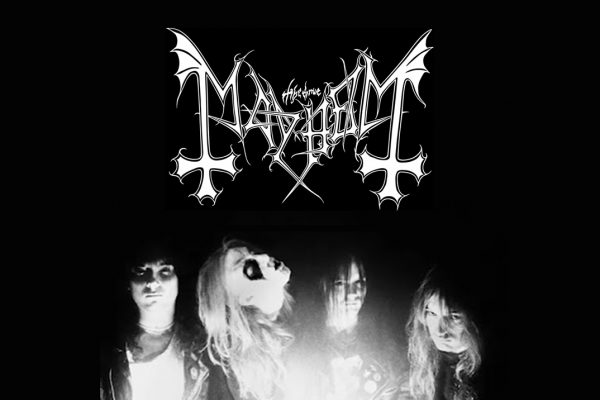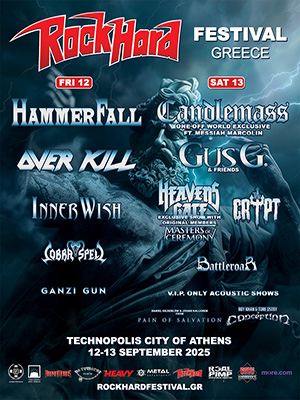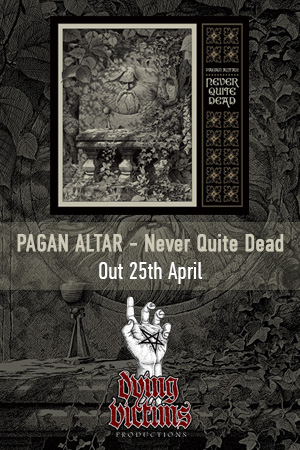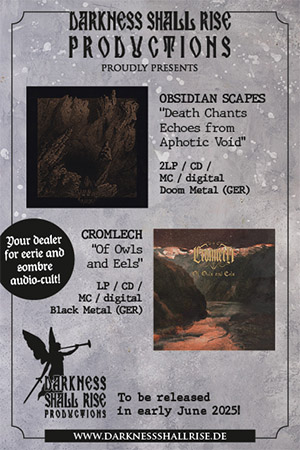August 22nd of 2021 was a sad day for doom and heavy metal. It was the day when Eric Wagner left the mortal world. Wagner died from complications of COVID-19 in Las Vegas, at the age of 62, while his band The Skull was touring in the United States with The Obsessed. Wagner’s solo album In the Lonely Light of Mourning was already recorded and released a few months after his passing. What you will read below is a look into the musical story of Eric Wagner and his last days, combined with an unpublished interview conducted in 2022, with Eric’s long-time friend and colleague Ron Holzner, bassist of The Skull and ex-bassist of Trouble.
Sadness. I couldn’t think of anything else when I heard the news about Wagner’s passing, just sadness. For his family and close friends, for his fellow musicians, for the fans and all those people who have connected his voice with life memories, their youth and their favourite albums, name them Psalm 9, The Skull, Run to the Light, Trouble or Manic Frustration. Sadness for Eric too, because it’s not just that he is no longer with us, but also he never saw people embracing his solo album, In the Lonely Light of Mourning. A record that’s a melancholic view of Eric himself throughout his entire career, but in the end, after diving deeply into the album, one can understand it is also an honest and emotional view of his past and, somehow, a soul-searching album that’s very ‘Eric Wagner and Trouble’. “He has come full circle with this record”, Ron Holzner added.
“Eric originally was going to do a Blackfinger band type of record”, notes Ron. “He started writing these songs with Dave Snyder and Chuck Robinson while living in Pittsburgh a few years ago. He’s been working on it for a while… This was gonna be the third and final chapter of Blackfinger. Eric soon realized it was a bit more personal and different than anything he had done before. He knew it wasn’t a band thing but a personal project for him, so he decided to just call it Eric Wagner and fuck the band idea. He moved back to the Chicago area to be closer to his kids and us, The Skull. He continued working on ‘his’ record and also new stuff we were writing. Flip-flopping back and forth… ‘These lyrics are for a Skull song, no wait… this is for my solo record, no it’s for a Skull song, no wait’. It drove me nuts!”
Dave Snyder of Blackfinger played drums on all the songs and guitar to a few of them, while Chuck Robinson (ex-Trouble) performed most of the rest of the guitars and, alongside Wagner, those three wrote In the Lonely Light of Mourning. Many more people contributed, including legend Victor Griffin (Place of Skulls, ex-Pentagram) and, of course, bassist Ron Holzner of The Skull and member of the Trouble from the Run to the Light album of 1987 up to the early 2000s. “Eric wanted me to play bass on the whole record, but I declined,” says Ron. “I was working on writing new Skull material and didn’t have the time. I agreed to do three songs. I told him he should get various people he has worked with over the years. I suggested Sean McAllister, an early Trouble bassist, and he also got Lothar Keller from The Skull to play a solo and also Victor Griffin. He filled it out with Blackfinger guys and that was a well-rounded group of players who delivered the goods”.
Eric Wagner worked hard so he could finish the album before The Skull went on the US tour with The Obsessed in late July 2021, and according to Ron, the album was completed exactly as Eric wanted. Entering hard territory, I asked Ron about both Eric Wagner of The Skull and also Wino of The Obsessed, who were both unvaccinated by belief, as mentioned. Did any other band member think that there was a possibility of facing the worst-case scenario? Did anyone try to convince them to get the vaccine and try to protect themselves?
“First off, I need to correct what some fuckhead misquoted me about. Eric was NOT AntiVax. He was an anti-Big Pharma money machine. ‘They don’t cure people, they just create more patients to make more money off of’, is what he said. He wasn’t unvaccinated by belief as grossly misreported. He was busy finishing his record, living in a basement below the studio in the middle of nowhere. He didn’t drive and wasn’t in the best of health to walk miles to get the vaccination. He was a bit lazy and not really all that concerned about it. I asked him to get it many times. ‘Yeah, yeah, yeah’ is what I heard. ‘I got masks…’ The idiots on social media probably swayed him a bit by not taking it as seriously as he should have. You can lead a horse to water, but it’s up to the motherfucker to drink it!”
Ron doesn’t hold his words and continues: “When you go on tour you need to be upbeat and positive, think about the best-case scenarios and try to be prepared for the worst. You can’t doom the voyage before setting off… None of us were prepared for what happened or thought of this worst-case scenario. Death is a possibility every time you leave on tour and say goodbye to your loved ones. You try not to think about it”. COVID-19 was fatal for Eric Wagner, and he didn’t take it as seriously as he should have. “It wasn’t close to him. Out of sight, so out of mind,” Ron adds. “He knew it was real but not the true extent of what it was and what was happening in the real world. Misinformation can be a killer”.
The tour started and at some point most of the touring band was infected and then Eric started getting worse. “We chatted a little bit, but I kept my distance just in case” says Ron. “He tested positive the next day. I tested negative. The three of us who weren’t sick left the premises and I never saw him again”. When Ron was asked what Eric had been saying the last few days, it was that he was looking forward to moving to New Mexico and also that he would be getting the vaccine. “Things about ‘when’ he got better, not ‘if’. His last few days were spent talking with his kids and loved ones,” adds Ron. “I was told he was getting better, so I didn’t bother him”.
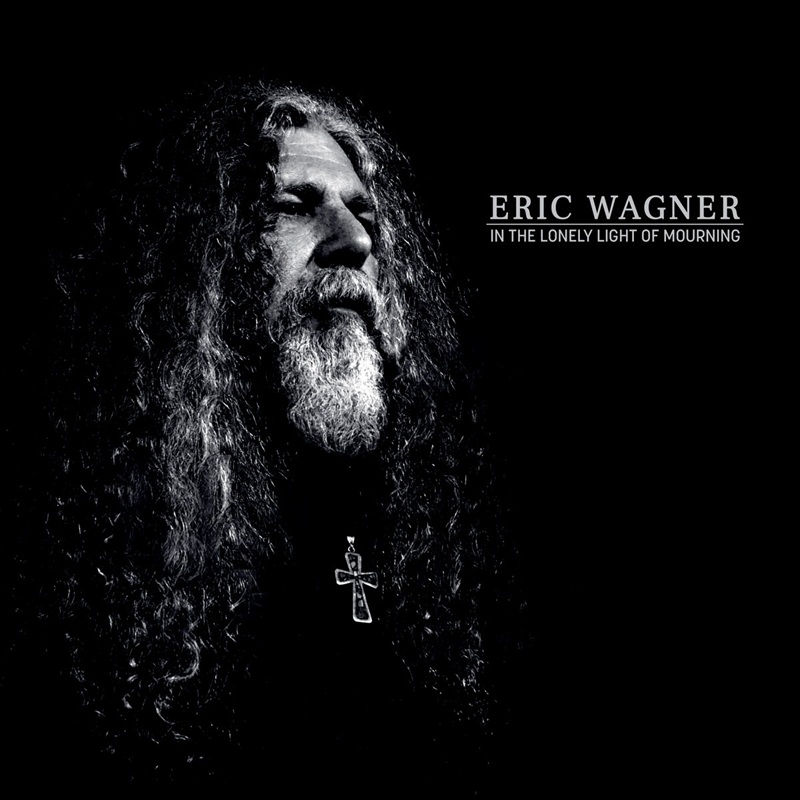
Formed in the late ’70s, Trouble were inspired by Black Sabbath and combined the Sabbathian Magick with the double guitars of early Judas Priest, the New Wave of British Heavy Metal, plus members’ personal influences by bands like UFO, Deep Purple, and even The Beatles. In the early years, Trouble had a spiritual lyrical approach and the band’s first record label (Metal Blade Records) tried to market them as a “white metal” act, while the press also mentioned them alike. Black Metal was already there as a term (thanks to Venom), even if it was completely different music-wise to what we know now, while satanic imagery and evil lyrics were dominating a big part of the metal scene, especially when more extreme metal subgenres started taking shape. Truth to be told, Trouble never liked the “white metal” tag, even if Eric Wagner was raised a Catholic and wrote most of the lyrics using biblical references.
Just like Saint Vitus and Pentagram, Trouble didn’t seem to intentionally want to play Doom Metal, let alone the fact that there wasn’t such a term widely known in the early ‘80s, even if it was rarely used. You could already see the “doom metal” tag mentioned in some magazines and for a handful of albums, but it wasn’t yet a sub-genre like we know it now, or like how it started shaping after Candlemass’ 1986 debut album, Epicus Doomicus Metallicus.
Trouble joined Metal Blade Records once the label’s head, Brian Slagel, listened to a live demo tape, recorded in Illinois in 1983. The same-titled debut album was recorded in February 1984, within a week, with the line-up of Eric Wagner (vocals), Rick Wartell (guitars), Bruce Franklin (guitars), Sean McAllister (bass) and Jeff Olson (drums). It was co-produced and engineered by Bill Metoyer, a usual partner of Metal Blade in the ’80s. Trouble wrote and performed original music. They didn’t follow any specific template, they had slow songs, mid-tempo songs, even thrashy riffs like “Bastards Will Pay”, and they also had one of the most underrated guitar duos in metal history. The second album, The Skull, didn’t take long and was released just a year later, since the band already had many songs completed before even releasing their debut album. After a while, McAllister and Olson left the band and were replaced by Ron Holzner on bass, and Dennis Lesh on drums, and with this line-up they recorded in March 1987 the third album, Run to the Light, their last one with Metal Blade, completing their first era, since from that moment, their doom metal style started changing to something wider and more diverse.
I’ve been a doom fanatic and I can’t compare those early ’80s Trouble albums with anything else they’ve done from the ’90s onwards. “The ‘80s was full of metal, man! It was a beautiful time”, notes Ron Holzner. “Trouble was underground on a smaller label and playing Sabbath-meets-Priest metal. There were a lot of ’70s rock influences as well thrown in there. It was fun to be in a band and playing during this time”. As for the differences with the ’90s albums, Ron continues: “The ’90s was a major label time and also grunge music was the BIG thing. Trouble was getting to lean towards more rock than metal, with psychedelia included. Producers, managers, cocaine, business, all affected the band. The business side became more important than the music side. It was topsy-turvy and fucked all our heads up. The Trouble album (1990) was the peak for the band before things started going sideways”.
Indeed, the Trouble album of 1990 was a major release since the band joined Rick Rubin’s Def American record label. The funny thing is that Trouble’s debut album of 1984 was also named and released as Trouble. So, when the 1990 release had the same title, all the following reissues of the 1984 album were changed to Psalm 9 so people wouldn’t be confused. On the 1990 album, Trouble worked with producer Rick Rubin and Ron remembers: “He was amazing. He’s a different kind of cat, but he knows what the hell he is doing! He made us all learn how to write a damn good song, how to produce a damn good record. He tore apart what we thought was a good record and made us make a great record”.
In 1992, Trouble released Manic Frustration and everything was already different. “The band was being pulled in a lot of different directions”, remembers Ron. “This record got significantly lighter because of it. There are some good rockin’ tunes on it, but overall I think the band was losing its identity and trying to be something it wasn’t”. That album was also produced by Rick Rubin, but according to Ron, he did not spend a lot of time with them on this one. “The trends of the time did affect us, but we did manage to make a pretty damn good record regardless”, concludes Ron. After that album, the label dropped them and the next one, Plastic Green Head, was released by Bullet Proof Records in 1995 and while you can still hear crushing riffs and Wagner’s distinctive voice, it is far from their ‘80s pure doom metal sound, and Trouble entered a period of hiatus.
During that period, Eric Wagner was joined by guitarist Danny Cavanagh of Anathema and formed the band Lid, releasing a one-off album titled In the Mushroom through Peaceville in 1997, combining elements of psychedelic rock, alternative, stoner and hard rock. Trouble rarely performed live during those years in the late ‘90s, with Kyle Thomas of Exhorder instead of Wagner just for a handful of shows, but what made Ron leave Trouble? “Ha! Oh boy. I noticed some peculiar inconsistencies with finances over the years,” Ron answered. “I asked questions about them and the future and direction of the band. I was told to ‘shut up and just play the bass’. I wasn’t around much longer. I had to get out of there. I heard that another guy in the band said that I gave some tapes to a bootlegger in Portugal behind the band’s back. That’s why I was fired. Ha! Nice cover story. I left on my own accord. The funny thing is that many other tapes were leaked to different bootleggers around the world for years after I was gone. Somebody is making money off the band and it isn’t me! I wanted off the sinking shit… I mean ship”. Eric eventually noticed some peculiar inconsistencies within the financial structure of the band as well, according to Ron. “He put 2 and 2 together and discovered a rat,” he adds. “He was soon out as well. Eric didn’t see any royalties from the newly re-released Trouble records. He was completely cut out. I was too, but I was used to it”.
A new Trouble album under the title Simple Mind Condition was released in 2007, the last one with Wagner, who left the band and had been replaced by Kory Clarke of Warrior Soul. Ron Holzner never lost sight of Eric Wagner and sometime in 2012 they formed The Skull. The name alone brings strong Trouble vibes and, alongside those two, you can also find long-time ex-Trouble drummer Jeff Olson in this new band. “It was interesting once Eric, Jeff and I got together and shared stories and compared notes,” remembers Ron. “We found out that the enemy of your enemy is your friend, ha! We had a common bond and wanted to present Trouble’s music the way we felt it should be presented and it was not anymore by those guys”. It all started out of fun time playing old Trouble tunes, but then it became something more. Ron says: “We eventually became our own thing, had our own identity. We still played the old Trouble songs when we wanted because we could and were entitled to. The best thing was that we didn’t have to play them, but we wanted to… We became two bands in one. Eric and I were really having fun playing in The Skull. This last tour was fun and successful… until the end”.
Eric Wagner also recorded two albums with the band Blackfinger, Blackfinger (2014), and When Colors Fade Away (2017), and alongside Holzner, recorded The Skull albums, For Those Which Are Asleep (2014) and The Endless Road Turns Black (2018). Wagner also appeared in Dave Grohl’s (Foo Fighters, Nirvana) metal project Probot and their only album under that name, which was released in 2004. Wagner sang the song “My Tortured Soul” and among the other guests on that album were Cronos of Venom, Lemmy of Motörhead, Max Cavalera of Sepultura and Soulfly, Thomas Gabriel Fischer of Celtic Frost and Triptykon, and King Diamond.
Looking back now that Eric Wagner, the long-time friend and colleague of Ron Holzner, is no longer with us, I wonder what Ron believes is Eric’s legacy? What’s his imprint on heavy music? “The Godfather of Doom. DoomPa!”, says Ron. “His haunting and mind-opening lyrics shall live on forever. He will always be Doom Royalty and a Rock and Roll legion”.


